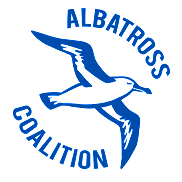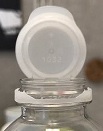
WHEREAS, the first Earth Day was over 50 years ago. Recycling, its natural industrial child, was envisioned to complete the resource circle, save the wilderness, generate jobs, and build the back end of the Gross National Product (GNP) all at once;
WHEREAS, the Earth calls us each and all to move swiftly towards Zero Waste; and
WHEREAS, this Zero Waste World will be founded on environmental and social justice principles that help create vibrant communities in harmony with nature.
THEREFORE, BE IT RESOLVED that [insert name of City, County, Board, Agency] hereby embraces the following principles on the journey to Zero Waste:
CENTER EQUITY: We stand in solidarity with and support the efforts of frontline communities and Black, Indigenous and People of Color. We envision a just and inclusive system resulting in a sustainable and regenerative future, while advocating for policies and practices that ensure human safety, equitable access to resources and opportunities, and elimination of toxins and pollution that negatively impact ecological health.
REDESIGN: We insist that manufacturers minimize and eliminate hazards and redesign products for highest material and energy efficiency, focusing services and products to embody durability, repairability, reuse, with recycling and/or composting as a final option, in that order.
BAN WASTEFUL PRODUCTS: We will ban products that are demonstrated to be wasteful by design, or contaminate recycling or composting programs, or are problematic in the environment.
MAKE PRODUCERS RESPONSIBLE FOR PROBLEM PRODUCTS: We insist companies minimize and eliminate the hazards their products pose to the environment and human health throughout the entire life cycle of the product, from resource extraction to final disposition. Further, producers should be held financially responsible for remedies of their product’s impacts – including costs for health care, management of discards, and environmental clean-up.
SEPARATE AT THE SOURCE: After redesign, we will collect all discarded materials and products separated at the source and further sort them into higher quality fractions for reuse, recycling, or composting, with nothing left out and nothing left over.
RESCUE FOOD AND COMPOST ORGANICS: We will establish and support programs to rescue food for people and animals, and to recover organic materials to make and use compost and mulch to reduce and sequester greenhouse gases.
SUPPORT AND EXPAND REPAIR AND REUSE: We will support existing reuse and repair organizations and infrastructure and expand opportunities for reuse and repair through outreach and education, promotion, and investment.
BUILD ZERO WASTE INFRASTRUCTURE: We will invest in Zero Waste infrastructure, including resource recovery parks, to safely salvage usable items and parts and handle all discards as resources to be refined.
END WELFARE FOR WASTING: We will end subsidies for resource extraction and support choosing recovered materials first for manufacturing.
ADVOCATE AND ADAPT AS NEEDED: We will use our power as elected leaders to show what is possible and help our communities to avoid mistakes in meeting the goals that we help them envision. Responses to new challenges such as pandemics, natural disasters, and weather-related emergencies should not create barriers to move towards a just world of vibrant, resilient, Zero Waste communities, in harmony with nature.
To achieve a worldwide culture that sustains the planet in perpetuity, we stand together!
Created by the Global Recycling Council a Technical Council of the California Resource Recovery Association (CRRA) and vetted by Zero Waste International Alliance (ZWIA), Zero Waste USA, and Global Anti-Incinerators Alliance (GAIA)


